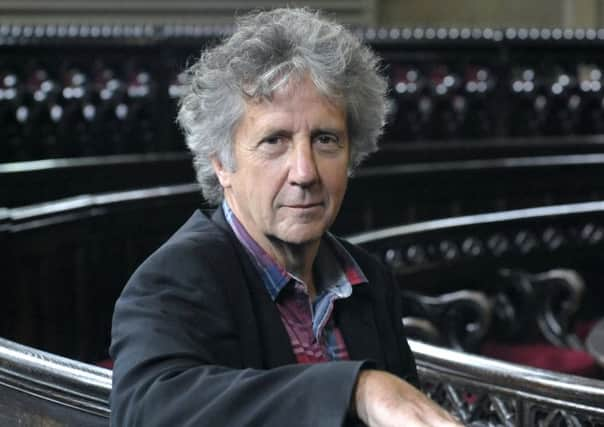The complicated bond between a father and son


most of us have our favourite memories of family holidays. For Blake Morrison it was a rather damp trip to Wales.
“Some of my earliest memories are of my father. I particularly remember the family standing in the rain on holiday in Wales, with us all wearing the same yellow jackets,” he says, chuckling at the memory.
Advertisement
Hide AdAdvertisement
Hide AdBlake is a former Skipton Grammar Schoolboy who was brought up in Thornton-in-Craven. He shot to fame in the early 90s on the back of his book And When Did You Last See Your Father?, which was later turned into a film starring Colin Firth as the younger Blake and Jim Broadbent as his father, Arthur.
The memoir was fond but also very painful in its warts-and-all portrayal of the father-son relationship. He wrote it in the year after his father, a doctor who had served with the RAF during the Second World War, died.
His father was 75 when he succumbed to cancer, just three months after being diagnosed. It affected Blake deeply and he wrote the book as a way of helping him deal with his grief.
“I started writing it as a form of therapy, for me it was just a way of coping. Although we had a complicated relationship at times I was devastated by his death and utterly unprepared for it, so this was a way of coming to terms with it.”
Advertisement
Hide AdAdvertisement
Hide AdHe not only found it a cathartic experience but it turned out it was one shared by others. “In the process of writing the book I discovered that lots of other people had relationships with their father like I did.”
It was, as he points out, a complex relationship. “It was a good one for the most part. But I had the problem that lots of sons have in that I felt I was a disappointment to him.
“There’s a feeling that you don’t quite live up to expectations. I know, for instance, that he would have liked me to take over the family practice and move in next door.”
His father was, he says, a larger than life character. “He was not big physically speaking, but he seemed to loom large and could be a bit intimidating, which is something a lot of people found.”
Advertisement
Hide AdAdvertisement
Hide AdBlake was raised in North Yorkshire after the family moved there before he was born. “My father had an urban upbringing and moving to Thornton was a very deliberate choice for him because he loved the countryside and the Dales and I think he felt it was important for us to have what he didn’t as a child.”
Like many of people, Blake says his father was a man of contradictions. “He could be quite domineering but at the same time good manners and etiquette were very strong with him. I remember he would get angry with me if he felt I had behaved badly towards someone.”
It’s now more than 20 years since his father died and his memoir was published. “I’ve found my attitude softening towards my father in some ways since writing the book,” he says.
“When you’re father dies you realise that you’re next in line, there’s a deep sense of your own mortality. When he died my children were still quite young and now they’ve gone through the teenage years and beyond and I can relate to the empty nest syndrome.”
Advertisement
Hide AdAdvertisement
Hide AdHe’s also found himself becoming more like his father. “He was very impatient and I’m becoming more impatient as I grow older. I feel time is passing by and when I look in the mirror I see myself looking more like him.
“When you’re younger you try hard to be different but you inherit certain traits which you notice as you get older - and these become part of who you are.”
Blake Morrison’s latest volume of poetry Shingle Street, published by Chatto & Windus, is out now.